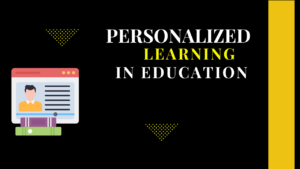
Introduction
Australia is a country located in the southern hemisphere, known for its natural beauty, strong economy, and high quality of life. It is a popular destination for immigrants, with a long history of welcoming people from around the world. In this post, we will explore all you need to know about immigrating to Australia, including its strong economy, high quality of life, education and healthcare systems, and diverse and welcoming culture. Whether you are considering moving to Australia for personal or professional reasons, it is a country with much to offer.
benefits of immigrating to Australia
There are many potential benefits to immigrating to Australia, including:
Strong economy:
Australia has a strong and diverse economy, with a high standard of living and low unemployment rate.
High quality of life:
Australia is known for its excellent quality of life, with a friendly and welcoming culture, clean and safe cities, and a wide range of outdoor activities to enjoy.
Education:
Australia has a well-regarded education system, with a number of top-ranked universities.
Health care:
Australia has a universal healthcare system, known as Medicare, which provides access to high-quality medical care for all citizens and permanent residents.
Multicultural society:
Australia is a diverse and multicultural society, with a long history of immigration. This makes it a welcoming and inclusive place to live.
Natural beauty:
Australia is home to a wide range of natural beauty, including beaches, national parks, and the Great Barrier Reef.
Work opportunities:
There are many job opportunities available in Australia, particularly in industries such as mining, agriculture, and healthcare.
Overall, immigrating to Australia can offer a range of personal and professional benefits, including a strong economy, high quality of life, excellent education and healthcare systems, and a diverse and welcoming culture.
Ways To Immigrate To Australia
There are several ways to immigrate to Australia, depending on your circumstances and the type of visa you are seeking. Here are some options:

Skilled Independent Visa (Subclass 189):
This is a permanent residence visa for skilled workers who are not sponsored by an employer or family member and who have the skills and qualifications needed to contribute to the Australian economy. To be eligible, you must meet certain criteria, including age, English language ability, and work experience.
Skilled Nominated Visa (Subclass 190):
This is also a permanent residence visa for skilled workers, but it requires sponsorship by an Australian state or territory government agency. To be eligible, you must meet the same criteria as the Skilled Independent Visa, as well as be nominated by an Australian state or territory.
Skilled Regional (Provisional) Visa (Subclass 489):
This is a temporary residence visa that allows skilled workers to live and work in a specific regional area of Australia for up to four years. To be eligible, you must be nominated by an Australian state or territory government agency or an eligible family member.
Temporary Graduate Visa (Subclass 485):
This is a temporary residence visa for international students who have recently graduated from an Australian educational institution. It allows you to live and work in Australia for up to four years.
There are also other types of visas available for different purposes, such as business, study, and family reunions. To find out more about the visa options available to you and how to apply, you can visit the website of the Department of Home Affairs, the Australian government agency responsible for immigration and citizenship.
Requirements For Immigrating To Australia
The requirements for immigrating to Australia depend on the type of visa you are applying for. Here are some general requirements that may apply:
Age:
Some visas have age requirements, such as the Skilled Independent Visa, which is generally only available to applicants aged under 45.

English language ability:
Most visas require a certain level of English language proficiency, which can be demonstrated through a recognized English language test.
Work experience:
Some visas, such as the Skilled Independent Visa and Skilled Nominated Visa, require a minimum level of work experience in a specific occupation.
Education:
Some visas may require you to have a certain level of education or qualifications, such as a bachelor’s degree or trade qualification.
Health:
Most visas require applicants to undergo a medical examination to ensure that they meet the health requirements for entry to Australia.
Character:
All visa applicants must meet character requirements, which include a police clearance certificate from any country where they have lived for 12 months or more in the past 10 years.
Financial capacity:
Some visas may require you to have a certain level of financial resources to support yourself while you are in Australia.
Sponsorship:
Some visas, such as the Skilled Nominated Visa and Skilled Regional (Provisional) Visa, require sponsorship by an Australian state or territory government agency or an eligible family member.
To find out more about the specific requirements for the visa you are interested in, you can visit the website of the Department of Home Affairs, the Australian government agency responsible for immigration and citizenship.
challenges of immigrating to Australia
There are several challenges that immigrants may face when moving to Australia. Some of these challenges include:
Cost of living:
Australia has a high cost of living, particularly in major cities such as Sydney and Melbourne. This can make it challenging to afford housing, food, and other necessities.
Finding employment:
Finding a job in Australia can be challenging, especially for immigrants who may not have existing connections or may not be familiar with the local job market.
Cultural differences:
Australia is a diverse country, but it may still have cultural norms and values that are different from those of your home country. Adjusting to these differences can take time and effort.
Homesickness:
Moving to a new country can be a rewarding and exciting experience, but it can also be difficult to leave behind friends, family, and familiar ways of life. Homesickness is a common challenge for immigrants.
Language barriers:
If you do not speak English fluently, it can be challenging to navigate daily life in Australia and to find work.
Visa and immigration requirements:
Navigating the visa and immigration process in Australia can be complex, and it is important to ensure that you have the necessary documentation and meet all requirements.
Overall, while immigrating to Australia can offer many potential benefits, it is important to be aware of the potential challenges and to be prepared to face them
Conclusion
In conclusion, Australia is a country with many potential benefits for immigrants. It has a strong and diverse economy, a high standard of living, and a well-regarded education and healthcare system. Its multicultural society and natural beauty make it a welcoming and enjoyable place to live. Whether you are considering moving to Australia for personal or professional reasons, it is a country with much to offer. Of course, as with any major life decision, it is important to carefully consider all of the potential benefits and challenges of immigrating to Australia before making a move.






